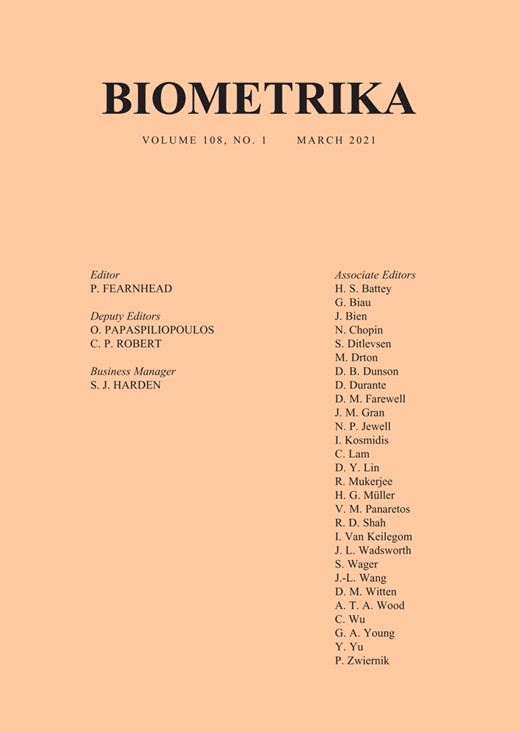-
Views
-
Cite
Cite
S M Schmon, G Deligiannidis, A Doucet, M K Pitt, Large-sample asymptotics of the pseudo-marginal method, Biometrika, Volume 108, Issue 1, March 2021, Pages 37–51, https://doi.org/10.1093/biomet/asaa044
Close - Share Icon Share
Summary
The pseudo-marginal algorithm is a variant of the Metropolis–Hastings algorithm which samples asymptotically from a probability distribution when it is only possible to estimate unbiasedly an unnormalized version of its density. Practically, one has to trade off the computational resources used to obtain this estimator against the asymptotic variances of the ergodic averages obtained by the pseudo-marginal algorithm. Recent works on optimizing this trade-off rely on some strong assumptions, which can cast doubts over their practical relevance. In particular, they all assume that the distribution of the difference between the log-density, and its estimate is independent of the parameter value at which it is evaluated. Under regularity conditions we show that as the number of data points tends to infinity, a space-rescaled version of the pseudo-marginal chain converges weakly to another pseudo-marginal chain for which this assumption indeed holds. A study of this limiting chain allows us to provide parameter dimension-dependent guidelines on how to optimally scale a normal random walk proposal, and the number of Monte Carlo samples for the pseudo-marginal method in the large-sample regime. These findings complement and validate currently available results.



